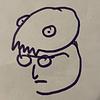Take a photo of a barcode or cover
This reads more like a reference book than something I want to read cover to cover. It's kind of dry. As a fellow autistic person, I get the desire to harp on using words and phrases correctly, but the author seems overconfident that just by having written them in this book that the issues she's discussing will hereby be corrected. I wish things worked that way! She also states a desire to define things using plain language, and I simply do not think she achieved that. I have an academic background, so I get it, but I imagine that an autistic person who hasn't been to college and/or is also intellectually disabled would have a hard time with this, and not necessarily because they don't understand the concepts being described.
I also didn't like that the author kept being like, oppression against neurodivergent people is just as bad as oppression against people of color/women/queer people. I obviously agree, but the way she discusses these issues seems to take it for granted that these forms of oppression have gone away or are on the decline.
I see in a few reviews that people thought the author's tone was condescending. I can kind of see how they would come to that conclusion; she is very blunt about having coined particular terms, having her work translated into other languages, and developing theory in this area. I read this bluntness as her simply telling the truth about her experiences and contributions in a typically autistic manner, which can be read as condescension, especially when the speaker is a woman. Still, I do agree that the author could have worked to develop self-awareness of how her tone comes across.
I also didn't like that the author kept being like, oppression against neurodivergent people is just as bad as oppression against people of color/women/queer people. I obviously agree, but the way she discusses these issues seems to take it for granted that these forms of oppression have gone away or are on the decline.
I see in a few reviews that people thought the author's tone was condescending. I can kind of see how they would come to that conclusion; she is very blunt about having coined particular terms, having her work translated into other languages, and developing theory in this area. I read this bluntness as her simply telling the truth about her experiences and contributions in a typically autistic manner, which can be read as condescension, especially when the speaker is a woman. Still, I do agree that the author could have worked to develop self-awareness of how her tone comes across.
Graphic: Ableism
Minor: Homophobia, Racism, Sexism
challenging
informative
reflective
slow-paced
Graphic: Ableism
Minor: Emotional abuse, Homophobia, Racism
informative
slow-paced
this was bomb as hell. seriously this book has made it to my list of books i always will rec when someone asks me for my definitive rec list. i think everyone should read this.
this book defo helped me find the words to verbalise a lot of issues i have with societal interpretations and expectations surrounding autism. especially liked the verbalisation surrounding the medical paradigm, it defo helped me put into words why i have such an issue with person-first language.
this also lowkey helped me embrace my autism? not to say i didnt before. but ive always been the person to say "oh if there was a cure for autism i would 100% take it i hate being autistic most of the time it fucking sucks". but idk this book has almost made me realise autism is what makes me who i am? i cannot seperate my autism from me or me from my autism, and this book has made me start to accept that a lot more.
i also loved the definitons of new concepts. this helped me learn im a dumbass and have been misusing neurodivergent because i didnt get the definition. Oops!
idk how to explain this better but this has defo helped me understand how autism and autism-based activism works on a deeper level. im so serious if anyone ever asks me for autisic and/or nonfic book recs this book WILL be making that list.
i suck at nonfic reviews
this book defo helped me find the words to verbalise a lot of issues i have with societal interpretations and expectations surrounding autism. especially liked the verbalisation surrounding the medical paradigm, it defo helped me put into words why i have such an issue with person-first language.
this also lowkey helped me embrace my autism? not to say i didnt before. but ive always been the person to say "oh if there was a cure for autism i would 100% take it i hate being autistic most of the time it fucking sucks". but idk this book has almost made me realise autism is what makes me who i am? i cannot seperate my autism from me or me from my autism, and this book has made me start to accept that a lot more.
i also loved the definitons of new concepts. this helped me learn im a dumbass and have been misusing neurodivergent because i didnt get the definition. Oops!
idk how to explain this better but this has defo helped me understand how autism and autism-based activism works on a deeper level. im so serious if anyone ever asks me for autisic and/or nonfic book recs this book WILL be making that list.
i suck at nonfic reviews
Graphic: Ableism, Chronic illness, Homophobia
Moderate: Classism
Minor: Cursing
informative
inspiring
reflective
medium-paced
Parts one and two were very basic, neurodiversity 101 which I didn’t really need or enjoy, but the third part was solid and insightful. Will be recommending specific essays to people who are struggling to embrace their neurodiversity. I wish there was more discussion regarding queerness’s relationship with neurodiversity, especially trans people and neurodiversity.
Graphic: Ableism
Minor: Drug use
informative
reflective
In this essay collection, Nick Walker revisits her older articles and essays about the Neurodiversity Paradigm and adds newer commentary, delving into neuroqueering as well. This was a good mix of review and new information for me. I really liked that she included both the older essays and the additions, showing how her thinking and general discourse has changed. The biggest thing that hit me personally in this was what she had to say about somatics/movement. It was a bit of a watershed moment for me, as that is a way I really stifle myself.
Overall, this is a good introduction to the Neurodiversity Paradigm and neuroqueering. I do think one would want to read more introductory things to disability in general before reading this if you are totally unfamiliar with discourses on disability, but if you have a basic understanding, this is a must-read.
Overall, this is a good introduction to the Neurodiversity Paradigm and neuroqueering. I do think one would want to read more introductory things to disability in general before reading this if you are totally unfamiliar with discourses on disability, but if you have a basic understanding, this is a must-read.
Moderate: Ableism
emotional
hopeful
informative
inspiring
reflective
medium-paced
This is an excellent exploration of neurodiveristy, terminology definition (which was so helpful!), and applying queer theory. It took a long time to get around to what the author meant by neuroqueer theory, but she explains it extremely well, and everything leading up to it aptly broadened my understanding before we got there. There's a lot from this book that I take away to use in my life both in understand and making space for neurodiveristy.
Graphic: Ableism, Homophobia, Transphobia
Minor: Genocide, Hate crime
challenging
informative
reflective
medium-paced
Graphic: Ableism
challenging
hopeful
informative
inspiring
reflective
medium-paced
Graphic: Ableism
Moderate: Homophobia, Racism, Transphobia
challenging
informative
fast-paced
My opinion of this book slammed shut about 75% of the way through when Walker said with her whole chest "tame autistic" without irony to refer to people like Temple Grandin who gained approval (a dubious claim) from neurotypical society.
I think a lot of the underlying ideas are great, but ultimately Walker hypocritically employs a somewhat prescriptive view of how people are allowed to see autism. I do agree with the premise of neurodiversity as she outlined in the book, however I also think that it's an issue to say that anyone who employs any pathologizing self-identification is simply oppressed and their opinions by extension are invalid.
As a final note, she sure employs race as a comparison a whole lot for a white person while talking at length about who's allowed to speak for autistic people in academia, a category which does not include all autistic people.
I think a lot of the underlying ideas are great, but ultimately Walker hypocritically employs a somewhat prescriptive view of how people are allowed to see autism. I do agree with the premise of neurodiversity as she outlined in the book, however I also think that it's an issue to say that anyone who employs any pathologizing self-identification is simply oppressed and their opinions by extension are invalid.
As a final note, she sure employs race as a comparison a whole lot for a white person while talking at length about who's allowed to speak for autistic people in academia, a category which does not include all autistic people.
Graphic: Ableism
challenging
informative
medium-paced
Moderate: Ableism, Homophobia, Transphobia





